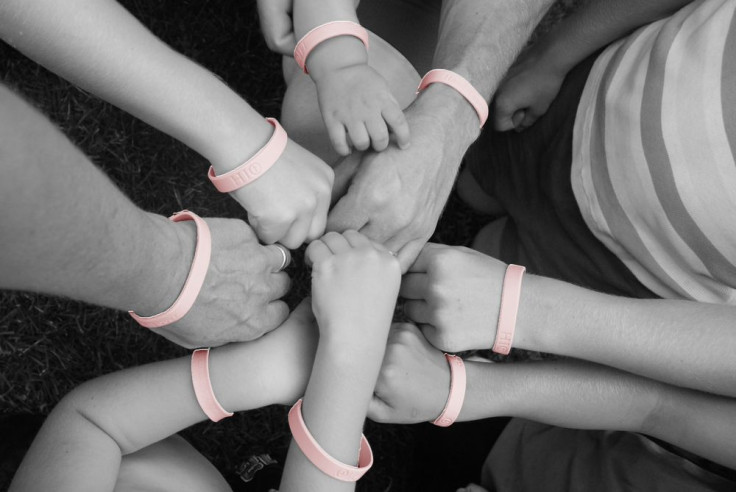Breast Cancer Vaccine On The Horizon; Passes Safety Test And Will Move On To Next Phase Of Clinical Trials

Breast cancer is the second most common cancer among American women, surpassed by only skin cancer. It’s estimated that around one in eight American women will develop some form of breast cancer during their lifetime, and sadly, the American Cancer Society estimates that around 40,000 women will succumb to the disease every year. Breast cancer detection and treatment is constantly improving, but with the possibility of a new vaccine, the day we beat breast cancer may be sooner than imagined.
A study on a new breast cancer vaccine developed at Washington University School of Medicine in St. Louis has found the treatment to be safe in patients with metastatic breast cancer. According to the press release, the vaccine helped patients’ immune systems attack breast tumor cells and also slowed the cancer’s progression.
The vaccine works by helping a patient’s own body fight off breast cancer cells by pushing the immune system to target proteins called mammaglobin-A. These proteins are only found in breast tissue, and express themselves at abnormally high levels when there's a tumor.The vaccine prompts the immune system to target and destroy these proteins, which significantly slows breast cancer’s progression.
“Most physician scientists believe that breast cancer vaccines will be most successful for the treatment of patients with early-stage breast cancer, or for prevention of breast cancer in patients who are at high risk for developing breast cancer,” breast cancer surgeon and senior author of the study Dr. William E. Gillanders told Medical Daily in an email. Mammaglobin-A is found in as many as 80 percent of breast cancer cases, he said. "In theory, this means we could treat a large number of breast cancer patients with potentially fewer side effects.”
The phase 1 trial was conducted to test the vaccine’s safety, and researchers were pleased to find that it passed with flying colors. Rash, tenderness at the vaccination site, and mild-flu like symptoms were the worst reactions recorded. "Despite the weakened immune systems in these patients, we did observe a biologic response to the vaccine while analyzing immune cells in their blood samples," said Gillanders.
It’s important to note that this vaccine did not “cure” the patient’s cancer or cause them to go into remission. “Cancer vaccines are not currently used as a substitute for other therapies — they are typically given in addition to other effective treatments,” Gillanders told Medical Daily.
Now that the vaccine has been shown to be safe for human use, the team will move on to a larger clinical trial. This time, they will use volunteers who were only recently diagnosed with breast cancer, and therefore would have much stronger immune systems. It’s believed that the stronger immune systems may provide even more impressive results.
“If we give the vaccine to patients at the beginning of treatment, the immune systems should not be compromised like in patients with metastatic disease," Gillanders said. "We also will be able to do more informative immune monitoring than we did in this preliminary trial.”
Still, of the 14 volunteers in this most recent trial, about half showed no cancer progression one year after receiving the vaccine, which Gillanders says suggests “that the cancer growth was slowed — i.e. the progression-free survival was prolonged.”
The team now has the funding needed for the second phase of their study and will soon begin their new trial.
Source: Gillanders WE, Tiriveedhi V, Tucker N, et al. Safety and preliminary evidence of biological efficacy of a mammaglobin-A DNA vaccine in patients with stable metastatic breast cancer. Clinical Cancer Research. 2014.
Published by Medicaldaily.com



























